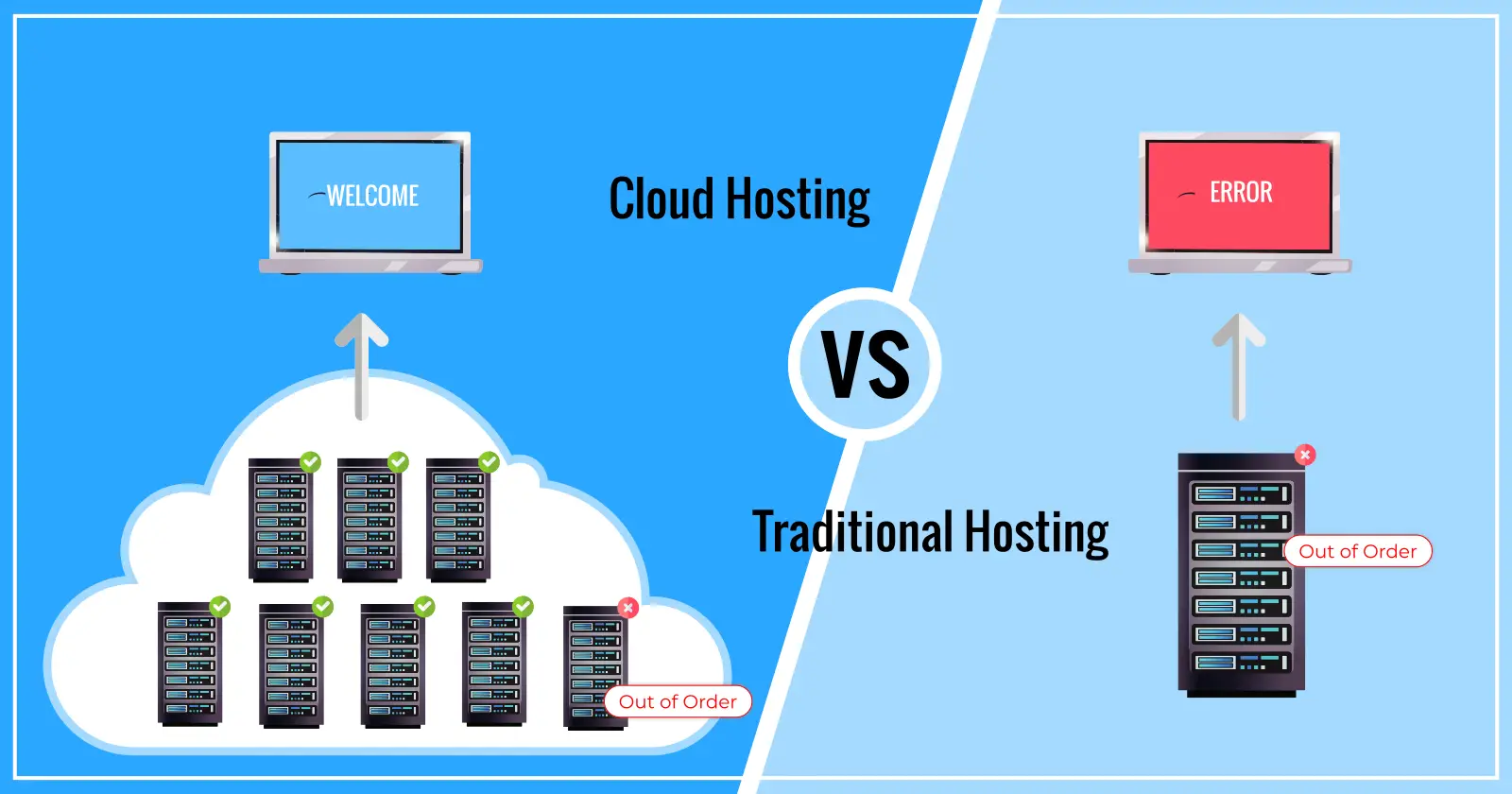In today’s fast-paced world, businesses are rapidly embracing technology to achieve their objectives, and one of the most popular trends is cloud migration. Companies are increasingly turning to the cloud to take advantage of its scalability, flexibility, and cost-effectiveness. However, traditional hosting is still a popular option, and many businesses still use it. This article will explore the difference between cloud migration and traditional hosting, their benefits and drawbacks, and help you determine which is right for your business.
Cloud Migration vs Traditional Hosting: What’s the Difference?
Cloud Migration
Cloud migration is the process of moving data, applications, and other business operations from on-premises hardware to cloud-based infrastructure. This infrastructure is owned, maintained, and managed by a third-party provider such as Amazon Web Services (AWS), Microsoft Azure, or Google Cloud Platform (GCP). Cloud migration provides several benefits, including:
Scalability
Cloud-based infrastructure provides businesses with scalability, which means that they can easily add or remove resources as needed. This means that businesses can scale up or down as needed, without having to worry about the costs associated with maintaining hardware.
Flexibility
Cloud-based infrastructure provides businesses with the flexibility to access data and applications from anywhere in the world, using any device with an internet connection. This allows businesses to operate in a more agile manner, which can be essential in today’s fast-paced business environment.
Cost-effectiveness
Cloud-based infrastructure is generally more cost-effective than traditional hosting. This is because businesses only pay for the resources they use, and do not have to worry about maintaining and upgrading hardware.
Traditional Hosting
Traditional hosting involves hosting a business’s data and applications on its own hardware. This hardware is typically owned, maintained, and managed by the business itself. Traditional hosting provides several benefits, including:
Control
Traditional hosting provides businesses with complete control over their data and applications. This means that businesses can customize their hardware and software to meet their specific needs.
Security
Traditional hosting provides businesses with greater control over their security. Because the hardware is owned and managed by the business, it is easier to implement security measures that are tailored to the business’s needs.
Reliability
Traditional hosting can be more reliable than cloud-based infrastructure, as businesses have complete control over their hardware and can ensure that it is always up and running.
Which is Right for Your Business?
When it comes to choosing between cloud migration and traditional hosting, there is no one-size-fits-all answer. The choice will depend on several factors, including:
Size and Complexity of Your Business
If your business is small and has relatively simple infrastructure, cloud migration may be the best option. Cloud-based infrastructure is generally more cost-effective and scalable, which can be important for small businesses.
Control and Security Requirements
If your business requires complete control over its data and applications, traditional hosting may be the best option. Traditional hosting provides businesses with greater control over their hardware and security.
Cost
Cost is always an important factor to consider. Cloud-based infrastructure is generally more cost-effective than traditional hosting, but this may not always be the case. Businesses should carefully consider the costs associated with each option before making a decision.
Conclusion
In conclusion, cloud migration and traditional hosting both have their benefits and drawbacks. Choosing between the two will depend on several factors, including the size and complexity of your business, your control and security requirements, and cost. Businesses should carefully consider these factors before making a decision.
FAQs
1. What is cloud migration?
Cloud migration is the process of moving data, applications, and other business operations from on-premises hardware to cloud-based infrastructure.
2. What is traditional hosting?
Traditional hosting involves hosting a business’s data and applications on its own hardware. This hardware is typically owned, maintained, and managed by the business itself.
3. What are the benefits of cloud migration?
Cloud migration provides several benefits, including scalability, flexibility, and cost-effectiveness. Businesses can easily add or remove resources as needed, access data and applications from anywhere, and only pay for the resources they use.
4. What are the benefits of traditional hosting?
Traditional hosting provides businesses with complete control over their data and applications, greater security, and potentially more reliability.
5. How do I determine which option is right for my business?
Choosing between cloud migration and traditional hosting will depend on several factors, including the size and complexity of your business, your control and security requirements, and cost. Carefully consider these factors before making a decision.
